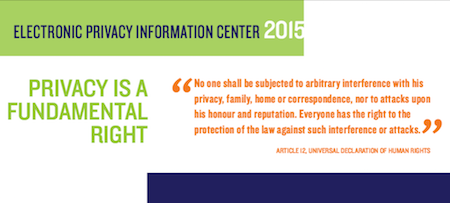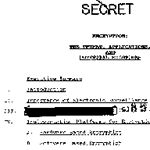On March 16, 2016 the Senate will consider the FAA Reauthorization bill. Senator John Thune introduced the legislation to fund the operations of the the federal agency responsible for aviation safety. The bill requires drone operators to post privacy policies, but provides no meaningful privacy safeguards that would limit surveillance by drone operators. EPIC has urged Congress and the FAA to establish real limits on surveillance by drones. EPIC also recommended that the FAA to establish a national database detailing the surveillance capabilities of commercial drones. And after the agency failed to establish privacy rules mandated by Congress, EPIC filed a lawsuit, EPIC v. FAA that is now pending before the DC Circuit Court of Appeals.
EPIC Domestic Surveillance Project Director Jeramie Scot will testify at a hearing on before the Pennsylvania Senate Majority on "Unmanned Aerial Vehicles." The hearing will address the private and public sector use of drones. In a prepared statement, EPIC’s Scott urges the Pennsylvania Senate to enact legislation to limit both law enforcement and commercial drone surveillance. EPIC states, “The increased use of drones to conduct various forms of surveillance must be accompanied by increased privacy protections.” EPIC previously sued the FAA for failing to establish federal privacy rules for commercial drones. EPIC v. FAA is pending before the D.C. Circuit.
In celebration of Sunshine Week, a national recognition of public access to information, EPIC has unveiled the 2016 FOIA Gallery. Since 2001, EPIC has released annual highlights of EPIC's most significant open government cases. In 2015, EPIC obtained records on e-voting tests from the Department of Defense, a secret EU-US data transfer agreement, and a massive boater tracking program operated by the DHS. In the latest FOIA Gallery, EPIC also highlights the victory in EPIC v. DOJ a FOIA case concerning electronic surveillance reports, EPIC v. NSA about cyber surveillance, and EPIC's role as "friend of the court" in an open government case before the California Supreme Court.
























